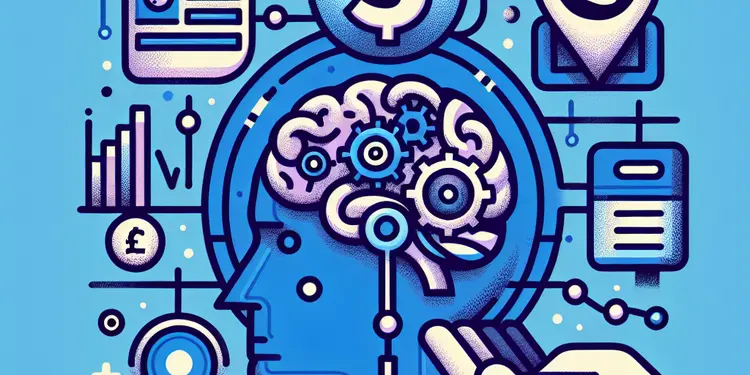
Find Help
More Items From Ergsy search
-
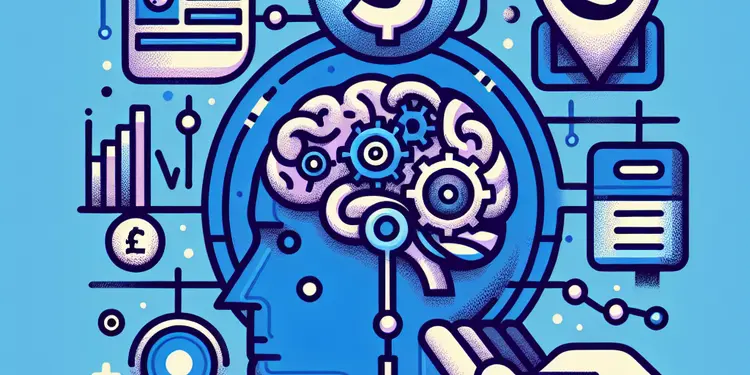
What are the symptoms of Huntington's disease?
Relevance: 100%
-

At what age do symptoms of Huntington's disease typically appear?
Relevance: 90%
-

What is Huntington's disease?
Relevance: 88%
-
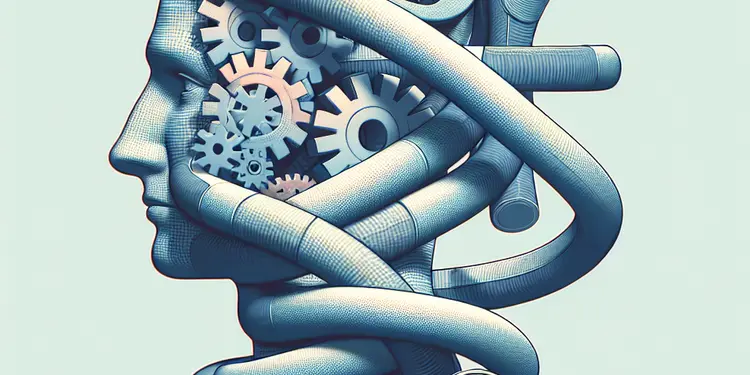
Is Huntington's disease fatal?
Relevance: 87%
-

What causes Huntington's disease?
Relevance: 85%
-

How is Huntington's disease diagnosed?
Relevance: 84%
-

Can Huntington's disease be prevented?
Relevance: 83%
-

Can Huntington's disease be cured?
Relevance: 82%
-
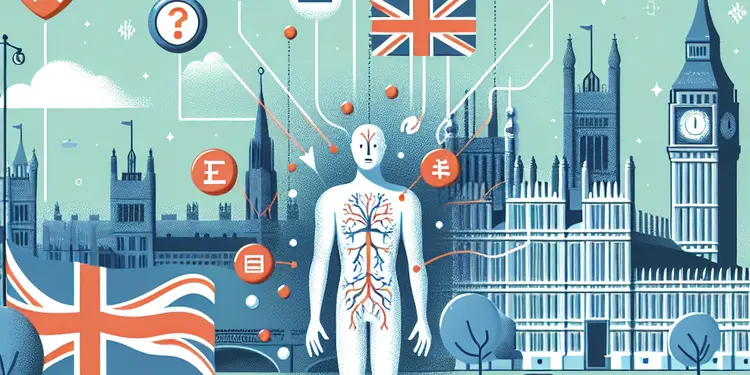
How does Huntington's disease affect emotions?
Relevance: 80%
-

How does Huntington's disease affect movement?
Relevance: 79%
-

How does Huntington's disease affect cognition?
Relevance: 78%
-

What research is being done on Huntington's disease?
Relevance: 77%
-

What is the role of genetic testing in Huntington's disease?
Relevance: 76%
-
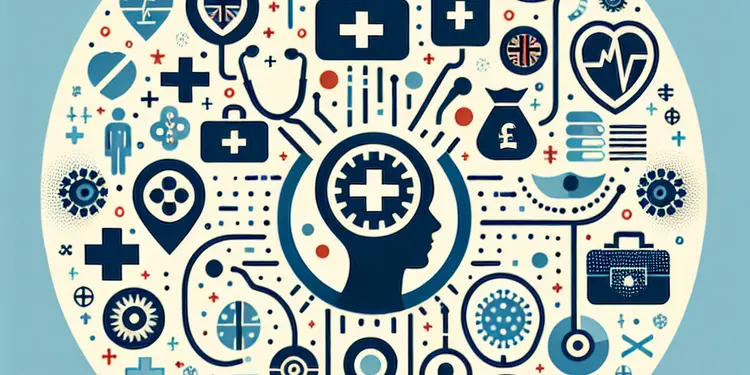
What kinds of specialists are involved in treating Huntington's disease?
Relevance: 75%
-

Can lifestyle changes help manage Huntington's disease?
Relevance: 73%
-

What is Juvenile Huntington's disease?
Relevance: 60%
-

How is Huntington's disease inherited?
Relevance: 59%
-

Are there treatments available for Huntington's disease?
Relevance: 59%
-
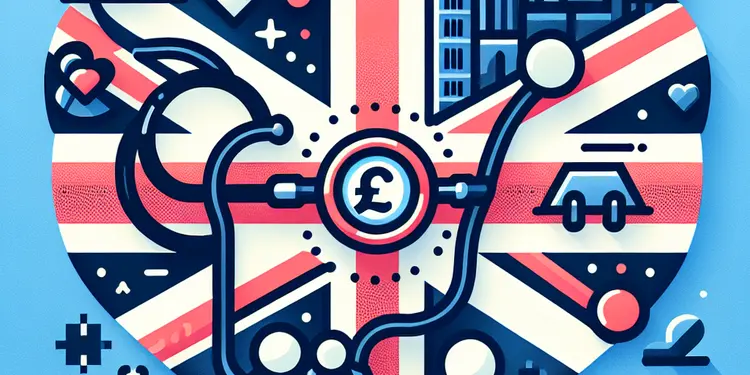
What support is available for families affected by Huntington's disease?
Relevance: 51%
-
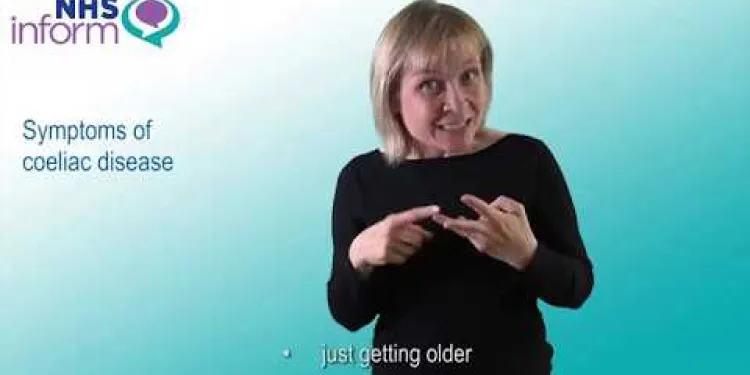
Symptoms of coeliac disease
Relevance: 49%
-
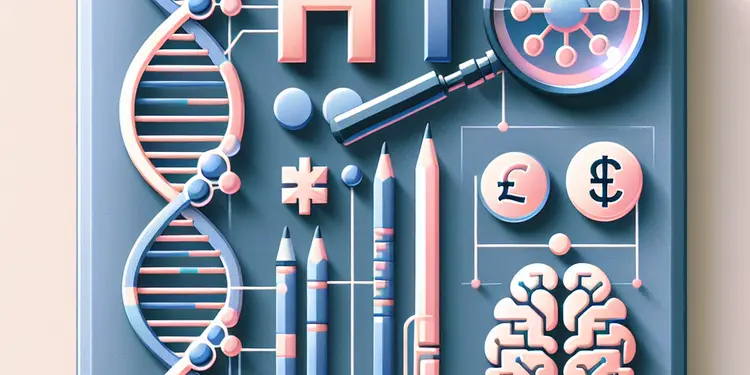
What role does the HTT gene play in Huntington's disease?
Relevance: 49%
-

What are common symptoms of Lyme disease?
Relevance: 45%
-
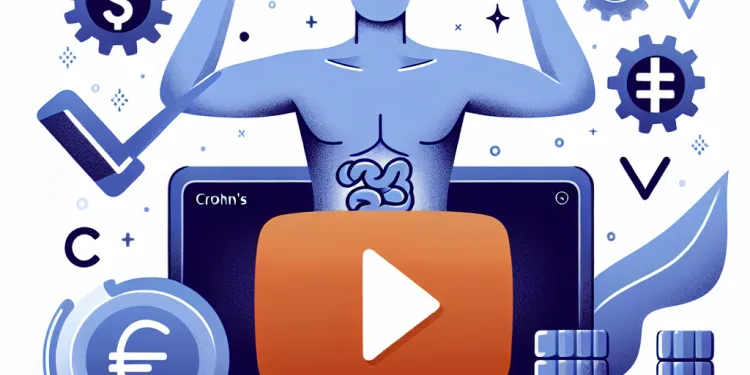
What are the common symptoms of Crohn's disease?
Relevance: 44%
-

What are the symptoms of Marburg virus disease?
Relevance: 44%
-

What are the symptoms of sickle cell disease?
Relevance: 44%
-
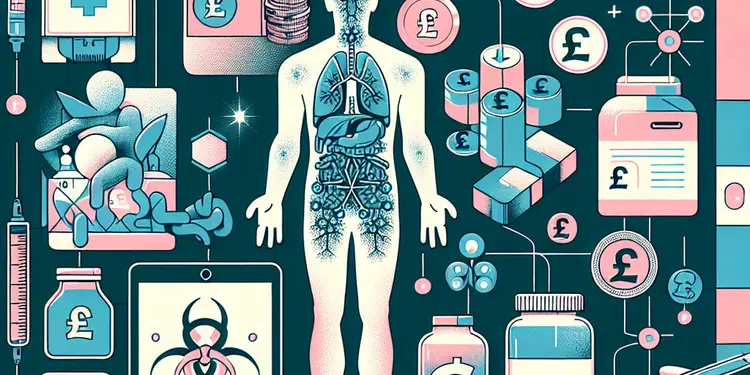
What are the symptoms of flesh-eating disease?
Relevance: 43%
-
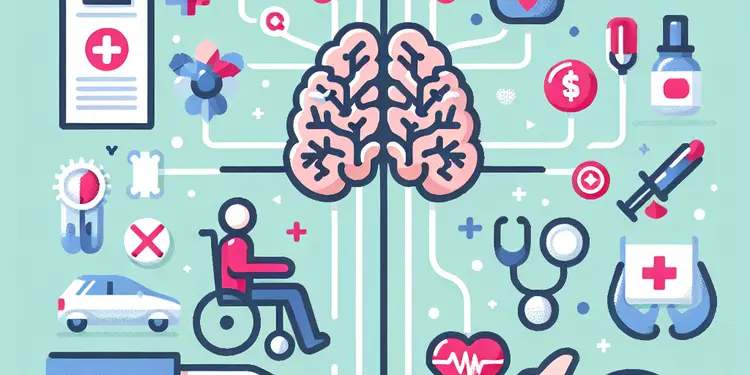
What are the primary symptoms of motor neurone disease?
Relevance: 42%
-
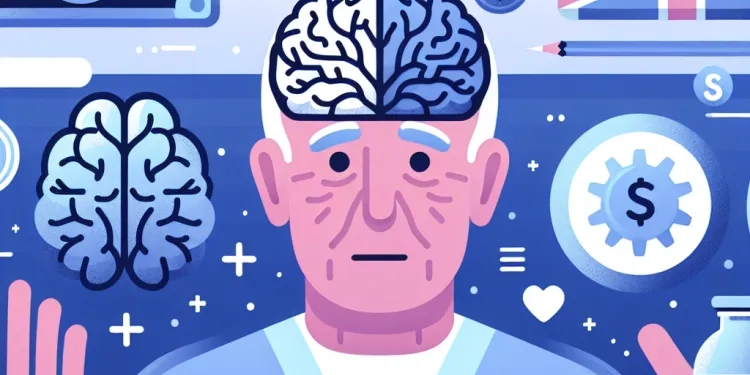
What are the symptoms of Alzheimer's disease?
Relevance: 42%
-

What symptoms should I watch for if I suspect a mosquito-borne disease?
Relevance: 41%
-
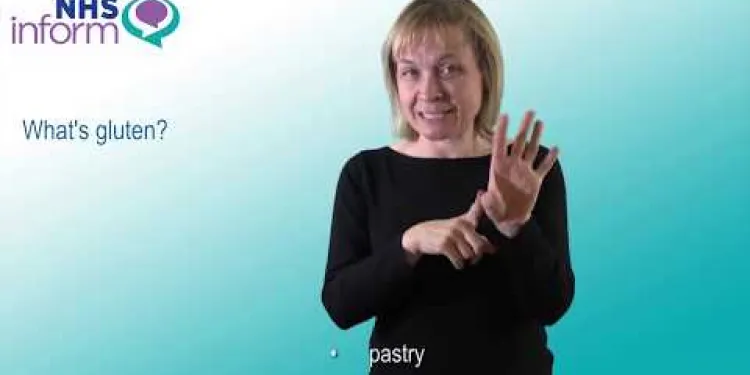
Coeliac disease
Relevance: 33%
-
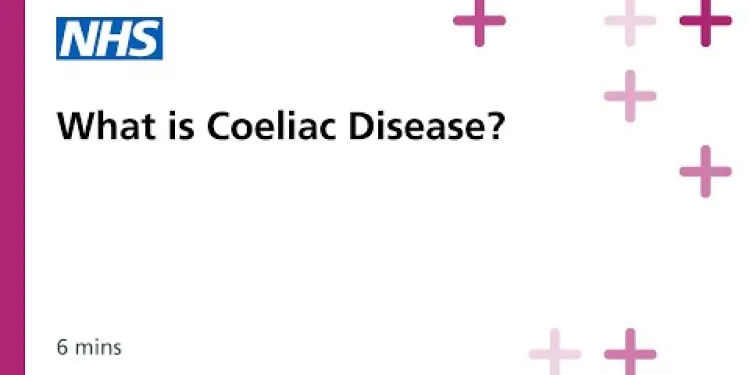
Coeliac Disease: Session 1: What is Coeliac Disease?
Relevance: 32%
-

What is Lyme Disease?
Relevance: 32%
-

What Causes Erectile Dysfunction (ED) - Disease or Symptom - NHS A to Z - Dr Gill
Relevance: 31%
-
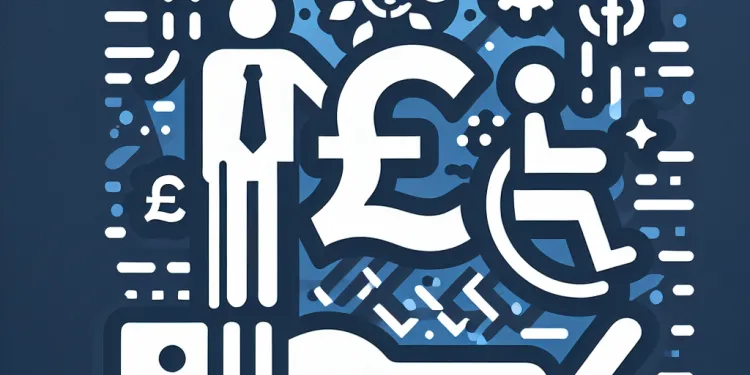
What is Parkinson's disease?
Relevance: 31%
-

Lyme disease: What is it?
Relevance: 31%
-

What is Mitochondrial disease?
Relevance: 31%
-
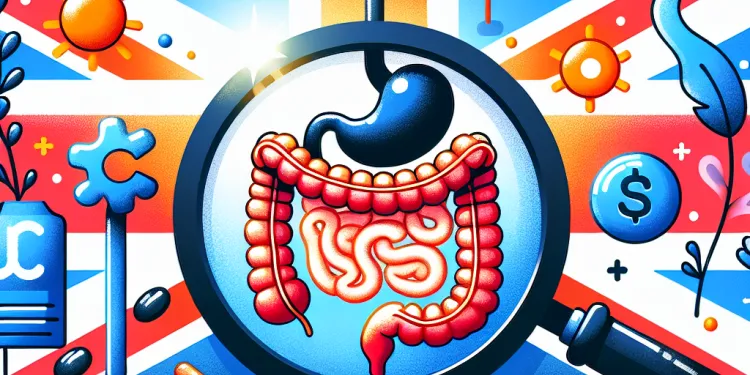
Is there a cure for Crohn's disease?
Relevance: 31%
-

Is Crohn's disease contagious?
Relevance: 31%
-

Liver disease | NHS
Relevance: 30%
-
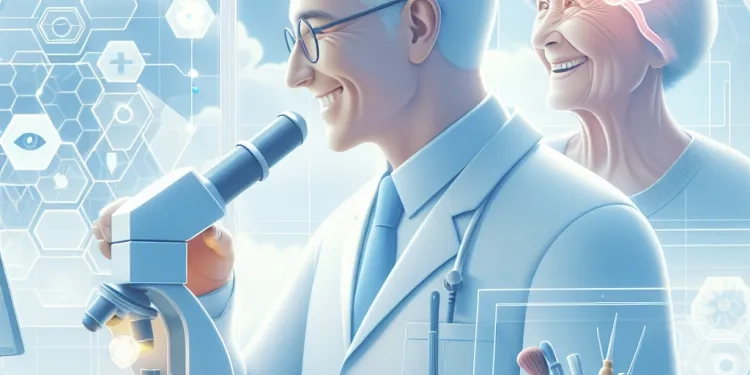
What is Alzheimer's disease?
Relevance: 30%
What are the Symptoms of Huntington's Disease?
Huntington’s disease is a progressive neurological disorder that affects an individual’s physical and cognitive abilities. It is caused by a genetic mutation and typically manifests in adults between the ages of 30 and 50, although symptoms can appear earlier or later. The disease impacts various systems in the body, leading to a wide array of symptoms that worsen over time. Understanding the symptoms can help in early diagnosis and management of the condition.
Motor Symptoms
One of the hallmark features of Huntington’s disease is its impact on movement. The most recognizable symptom is chorea, which refers to involuntary, jerky movements that can affect various parts of the body, including the face, limbs, and trunk. As the disease progresses, these movements can become more pronounced and interfere with daily activities. In addition to chorea, individuals may experience muscle rigidity, dystonia (sustained muscle contractions), and trouble with coordination. These motor symptoms can lead to difficulties with walking, speaking, and swallowing.
Cognitive Symptoms
Cognitive decline is another significant aspect of Huntington’s disease. Patients often experience difficulties with concentration, memory, and decision-making. As the disease progresses, it can lead to significant impairments in executive functions, such as planning, organizing, and multitasking. These cognitive changes can affect the individual’s ability to work and perform everyday tasks. Additionally, some individuals may develop signs of dementia as the disease advances, further complicating their ability to communicate and stay oriented.
Psychiatric Symptoms
Huntington’s disease can also have a profound impact on mental health. Many individuals experience changes in personality and mood, which can include irritability, depression, apathy, and anxiety. These psychiatric symptoms may precede motor symptoms and can be some of the earliest signs of the disease. In some cases, individuals may also develop obsessive-compulsive behaviors or experience delusions and hallucinations. It is crucial for these psychiatric symptoms to be addressed, as they can lead to significant distress and impact quality of life.
Additional Symptoms
Beyond the primary motor, cognitive, and psychiatric symptoms, Huntington’s disease can lead to other health problems. Individuals may experience sleep disturbances, weight loss, and fatigue. Swallowing difficulties can increase the risk of choking and aspiration pneumonia. Additionally, patients may face challenges with speech, leading to difficulties in effectively communicating with others. As the disease advances, these problems often necessitate comprehensive care and support.
Conclusion
Huntington’s disease is a complex disorder with a wide variety of symptoms that impact physical, cognitive, and psychiatric health. Early detection and management of these symptoms can help improve quality of life and enable individuals to seek appropriate care. If someone exhibits multiple symptoms associated with Huntington’s disease, it is essential to consult a healthcare professional for an accurate diagnosis and treatment plan.
What are the Symptoms of Huntington's Disease?
Huntington’s disease affects how a person moves, thinks, and feels. It is caused by a problem in the genes and usually starts when a person is between 30 and 50 years old. But it can start earlier or later. The disease affects different parts of the body, and the symptoms get worse over time. Knowing the symptoms helps in finding and treating the disease early.
Motor Symptoms
Huntington’s disease changes how you move. People with the disease have movements they can't control, called chorea. These are jerky movements in the face, arms, legs, or body. As time goes on, these movements can get worse and make daily tasks hard. Other problems include stiff muscles, muscle cramps, and trouble with balance. These can make walking, talking, and eating difficult.
Cognitive Symptoms
Huntington’s disease also affects thinking. It can make it hard to pay attention, remember things, and make choices. As time goes on, planning and organizing can become very hard. These thinking problems can make working and doing daily activities hard. Some people with the disease might have dementia, making it even harder to talk and know where they are.
Psychiatric Symptoms
Huntington’s disease can also change how a person feels and behaves. Many people might become grumpy, sad, or anxious. These changes can happen before the movement problems start. Some people may also show obsessive behavior or believe things that are not real. It is very important to treat these feelings because they can make life really hard.
Additional Symptoms
There are other problems that can come with Huntington’s disease. People might have trouble sleeping, lose weight, and feel very tired. Eating can be hard because of swallowing problems, which can cause choking. Talking might also be hard, making it difficult to talk with others. As the disease gets worse, people might need a lot more help and care.
Conclusion
Huntington’s disease is a serious condition that changes how a person moves, thinks, and feels. Finding the symptoms early and getting help can make life better. If someone shows signs of Huntington’s disease, it is important to see a doctor to get the right diagnosis and treatment.
Frequently Asked Questions
What are the early symptoms of Huntington's disease?
Early symptoms of Huntington's disease can include mood swings, depression, irritability, small changes in coordination, difficulty thinking through problems, and uncontrollable movements of the fingers, feet, face, or trunk.
At what age do symptoms of Huntington's disease typically begin?
Symptoms of Huntington's disease typically begin between ages 30 and 50, but can start earlier or later.
Are there cognitive symptoms associated with Huntington's disease?
Yes, cognitive symptoms can include problems with memory, difficulty organizing or focusing on tasks, and impaired judgment.
What are some common movement disorders in Huntington's disease?
Common movement disorders include chorea (involuntary jerking or writhing movements), dystonia (muscle rigidity), and bradykinesia (slowness of movement).
Can Huntington's disease affect mental health?
Yes, individuals may experience depression, anxiety, and changes in behavior or personality.
How does Huntington's disease affect speech and swallowing?
As the disease progresses, it can lead to difficulty speaking clearly and problems with swallowing, known as dysphagia.
Are there any sleep disturbances in Huntington's disease?
Yes, people with Huntington's disease may experience sleep disturbances including insomnia and altered sleep-wake cycles.
How does Huntington's disease impact coordination?
Loss of coordination can lead to frequent stumbling or falling, difficulty with tasks requiring fine motor skills, and clumsiness.
What are the psychiatric symptoms of Huntington's disease?
Psychiatric symptoms can include mood disorders like depression and bipolar disorder, obsessive-compulsive behaviors, and apathy.
Is weight loss a symptom of Huntington's disease?
Yes, weight loss is a common symptom due to increased caloric expenditure from involuntary movements and difficulty eating.
What is chorea and how is it related to Huntington's disease?
Chorea is a symptom characterized by involuntary, unpredictable body movements. It is one of the hallmark symptoms of Huntington's disease.
Can Huntington's disease cause balance problems?
Yes, balance issues are common as the disease affects the muscle movements and coordination.
How does Huntington's disease affect a person's emotions?
Individuals may experience emotional changes such as irritability, anger, mood swings, or a lack of motivation and initiative.
Are there any genetic factors in Huntington's disease symptoms?
Huntington's disease is genetic, with symptoms resulting from the mutation of the HTT gene on chromosome 4.
Is there a difference in symptoms between juvenile and adult-onset Huntington's disease?
Yes, juvenile Huntington's (onset before age 20) often presents with rapid decline in school performance, motor skill difficulties, and severe rigidity.
What are the cognitive impacts of Huntington's disease?
Cognitive impacts include difficulty with planning, impulse control, memory issues, and reduced ability to organize tasks.
Are hallucinations a symptom of Huntington's disease?
While less common, some individuals with Huntington's disease may experience hallucinations.
Is apathy a symptom of Huntington's disease?
Yes, apathy, or a lack of interest and motivation, is a common symptom of Huntington's disease.
Can Huntington's disease affect attention span?
Yes, individuals may have trouble focusing, maintaining attention, and with working memory.
Are there any changes in personality due to Huntington's disease?
Personality changes can occur, often manifesting as increased irritability, hostility, or social withdrawal.
What are the first signs of Huntington's disease?
Huntington's disease is a sickness that affects the brain.
Here are some early signs that someone may have it:
- Feeling very sad or angry
- Finding it hard to think clearly or remember things
- Moving the body in ways you don't mean to, like jerking or twitching
- Walking differently
- Finding it hard to talk
Helpful tools and tips:
- If you feel worried, talk to a doctor.
- Use pictures or videos to help understand things better.
- Write down important information so you don't forget.
Huntington's disease can start with some changes in how you feel and move. You might feel sad, angry, or upset more often. You could have a hard time thinking and solving problems. You might also notice your fingers, feet, face, or body moving when you don't want them to.
If you find reading hard, you can try these tips:
- Read out loud to yourself.
- Ask someone to read with you.
- Use pictures to help understand the words.
- Take breaks if it feels too hard.
When do signs of Huntington's disease usually start?
Huntington's disease signs usually start at 30 to 50 years old. Some people might notice signs when they are younger or older.
To help understand more, you can:
- Ask a doctor for advice.
- Look at pictures or diagrams about Huntington's disease.
- Watch videos that explain the disease simply.
Huntington's disease signs usually start when people are between 30 and 50 years old, but they can start at other ages too.
Can Huntington's disease affect the way we think?
Yes, Huntington's disease can change how we think and understand things.
Here are some ways it can affect thinking:
- It might make you forget things easily.
- It could be harder to focus or pay attention.
- Making decisions might take longer.
If you or someone you know is having trouble with thinking, here are some things that might help:
- Use a calendar or planner to remember things.
- Take breaks to help stay focused.
- Ask someone for help when making choices.
Yes, sometimes people have trouble with their thinking. This can make it hard to remember things, hard to organize or focus on tasks, and hard to make good decisions.
What movement problems can happen with Huntington's disease?
Sometimes people have trouble controlling how their bodies move. Here are some common problems:
Chorea: This is when parts of your body move in jerky or wavy ways, and you can't stop it.
Dystonia: This is when your muscles are very stiff and tight.
Bradykinesia: This means moving very slowly.
If you have any of these problems, it can help to talk to a doctor. They might suggest exercises or activities to make moving easier. Sometimes, using relaxation or breathing techniques can help your body feel better.
Does Huntington's disease change how we feel or think?
Yes, people might feel sad, worried, or act differently.
How does Huntington’s disease change talking and swallowing?
Huntington’s disease is an illness that can make talking and swallowing hard.
It can change the way you move your lips, tongue, and throat. This can make it tricky to say words clearly.
Swallowing food or drinks might be difficult too. You might feel like things get stuck in your throat.
Here are some tips to help:
- Speak slowly and take your time.
- Use simple words and short sentences.
- Cut food into small pieces and chew well.
- Drink water with your meals.
- Talk to a speech therapist for more help.
As the disease gets worse, it can make talking hard. It can also make swallowing food or drinks tricky. This problem is called dysphagia.
Do people with Huntington's disease have trouble sleeping?
People with Huntington's disease might have problems sleeping. They can wake up many times at night or find it hard to fall asleep. This can make them feel very tired during the day.
To help with sleep, they can try:
- Going to bed at the same time every night.
- Making the bedroom dark and quiet.
- Avoiding screens before bed, like TVs or phones.
- Taking relaxing breaths before sleeping.
Yes, people with Huntington's disease might have trouble sleeping. They can have problems like not being able to sleep at night or feeling sleepy at the wrong times.
How does Huntington’s disease affect movement?
Huntington’s disease can make it hard for people to move their bodies.
It can cause:
- Shaking or jerky movements
- Trouble walking
- Difficulty with balance
Helpful tools and techniques:
- Physical therapy: Helps with strength and balance.
- Occupational therapy: Teaches new ways to do daily tasks.
- Support from loved ones: Family and friends can help with care.
Loss of coordination can make you trip or fall a lot. It can be hard to do things that need tiny movements, like writing or using scissors. You might feel clumsy.
What are the mental signs of Huntington's disease?
Huntington's disease can change how people feel and think. Here are some mental signs:
- Feeling Sad: People might feel very sad or upset.
- Getting Angry Easily: They might get angry or annoyed quickly.
- Worrying a Lot: People might worry a lot and feel anxious.
- Trouble Thinking: It can be hard to think clearly or remember things.
Supportive Tools:
- Talk to Someone: Talking to a doctor or therapist can help.
- Relaxing Activities: Doing calming things like listening to music or drawing can make you feel better.
If you or someone you know is feeling these ways, talking to a doctor is a good idea. They can help find the best way to feel better.
Mental health problems can sometimes make people feel very sad or confused. This can happen with things like depression or mood swings. People might do the same thing over and over again, like washing their hands too much. Or they might not care about things they used to enjoy.
Can people lose weight if they have Huntington's disease?
Yes, losing weight can happen often. This is because your body uses more energy with movements you can't control. It might also be hard to eat.
What is chorea and how is it linked to Huntington's disease?
Chorea: This is a movement problem. It makes your body move in a jerky way. You can't control these movements.
Huntington's Disease: This is an illness that affects the brain. It can cause chorea. People with this disease might have trouble thinking, talking, or moving.
If you or someone you know has these problems, it is good to talk to a doctor. They can help. Using drawing or video tools might also help explain things better.
Chorea means having body movements you cannot control. These movements happen without warning. It is a main sign of a sickness called Huntington's disease.
Can Huntington's Disease cause balance problems?
Huntington's Disease can make it hard to balance. People with this disease might find it difficult to stand or walk without help.
If you have trouble balancing, try these tips:
- Hold onto a rail or wall when walking.
- Use a cane or walker for support.
- Ask a friend or family member to help you.
Talk to your doctor about more ways to help with balance.
Yes, people often have trouble keeping balance because the disease makes it hard for muscles to move right and work together.
How does Huntington's disease affect a person's feelings?
Huntington's disease is an illness that can change how a person feels. This means someone with this disease might get sad, angry, or worried more easily.
If you know someone with Huntington's disease, it is important to be patient and kind with them.
Sometimes, doing fun activities like drawing or listening to music can help them feel better.
If you have questions or feel upset, talk to a trusted adult who can help understand and support you.
People might feel different emotions. They could get grumpy or angry. Their feelings might change quickly. They might not want to do things or feel like they can't start new things.
Do genes affect Huntington's disease?
Genes are like instructions in our bodies. They tell the body how to work. Some people have genes that make them sick.
Huntington's disease is an illness that affects the brain. It can make it hard to think and move. If someone in your family has this disease, you might get it too.
If you want to know more, talk to a doctor or a nurse. They can help explain it to you.
Huntington's disease is an illness you get from your parents. It happens because there is a change in a special part of your body called the HTT gene. This gene is on something called chromosome 4.
Do symptoms change between children and adults with Huntington's disease?
Huntington's disease can start when you are a child or an adult. The signs you see might be different depending on when it starts.
For help reading, you can ask someone to read with you or use audiobooks. Highlighting important words can also help.
Yes, when young people get Huntington's before they are 20 years old, they might find school gets harder fast. They might have trouble moving and feel very stiff.
How does Huntington's disease affect the brain?
Thinking problems can make it hard to plan, control actions, remember things, and organize jobs.
Can people with Huntington's disease see or hear things that aren't there?
Yes, sometimes people with Huntington's disease might see or hear things that aren't real. These are called hallucinations.
If you or someone you know is having hallucinations, it can help to talk to a doctor. They can offer support and advice.
Using simple words and pictures can help understand what's going on.
Sometimes, people who have Huntington's disease might see or hear things that aren't really there. This is called having hallucinations. It doesn't happen to everyone, but it can happen.
If you want to learn more or need help with this, you can talk to a doctor or someone you trust. They can give you advice and support.
Is not caring a sign of Huntington's disease?
Some people with Huntington's disease may find it hard to care about things. This can be a sign of the disease.
It might help to keep a simple diary or planner to stay organized. Talking to a doctor or therapist can also help.
Yes, people with Huntington's disease often feel very tired and not interested in things. This is called apathy.
Does Huntington's disease make it hard to pay attention?
Huntington's disease is an illness that can affect the brain.
People with Huntington's disease might find it hard to focus.
They might not be able to pay attention for very long.
To help, they can:
- Take short breaks.
- Use reminders, like notes or alarms.
- Read or listen to information in small steps.
It can be helpful to have support from friends, family, or teachers.
Yes, some people can find it hard to pay attention, focus on tasks, and remember things in their head.
Does Huntington's disease change how someone acts?
Sometimes, a person can change how they act. They might get angry more easily. They might be more unfriendly or not want to be around people.
To help understand and manage these changes, using pictures, simple charts, or even talking with a friend can help. Writing down feelings or using color-coded feelings charts can also be useful.
Useful Links
This website offers general information and is not a substitute for professional advice.
Always seek guidance from qualified professionals.
If you have any medical concerns or need urgent help, contact a healthcare professional or emergency services immediately.
Some of this content was generated with AI assistance. We’ve done our best to keep it accurate, helpful, and human-friendly.
- Ergsy carfully checks the information in the videos we provide here.
- Videos shown by Youtube after a video has completed, have NOT been reviewed by ERGSY.
- To view, click the arrow in centre of video.
- Most of the videos you find here will have subtitles and/or closed captions available.
- You may need to turn these on, and choose your preferred language.
- Go to the video you'd like to watch.
- If closed captions (CC) are available, settings will be visible on the bottom right of the video player.
- To turn on Captions, click settings .
- To turn off Captions, click settings again.
More Items From Ergsy search
-

What are the symptoms of Huntington's disease?
Relevance: 100%
-

At what age do symptoms of Huntington's disease typically appear?
Relevance: 90%
-

What is Huntington's disease?
Relevance: 88%
-

Is Huntington's disease fatal?
Relevance: 87%
-

What causes Huntington's disease?
Relevance: 85%
-

How is Huntington's disease diagnosed?
Relevance: 84%
-

Can Huntington's disease be prevented?
Relevance: 83%
-

Can Huntington's disease be cured?
Relevance: 82%
-

How does Huntington's disease affect emotions?
Relevance: 80%
-

How does Huntington's disease affect movement?
Relevance: 79%
-

How does Huntington's disease affect cognition?
Relevance: 78%
-

What research is being done on Huntington's disease?
Relevance: 77%
-

What is the role of genetic testing in Huntington's disease?
Relevance: 76%
-

What kinds of specialists are involved in treating Huntington's disease?
Relevance: 75%
-

Can lifestyle changes help manage Huntington's disease?
Relevance: 73%
-

What is Juvenile Huntington's disease?
Relevance: 60%
-

How is Huntington's disease inherited?
Relevance: 59%
-

Are there treatments available for Huntington's disease?
Relevance: 59%
-

What support is available for families affected by Huntington's disease?
Relevance: 51%
-

Symptoms of coeliac disease
Relevance: 49%
-

What role does the HTT gene play in Huntington's disease?
Relevance: 49%
-

What are common symptoms of Lyme disease?
Relevance: 45%
-

What are the common symptoms of Crohn's disease?
Relevance: 44%
-

What are the symptoms of Marburg virus disease?
Relevance: 44%
-

What are the symptoms of sickle cell disease?
Relevance: 44%
-

What are the symptoms of flesh-eating disease?
Relevance: 43%
-

What are the primary symptoms of motor neurone disease?
Relevance: 42%
-

What are the symptoms of Alzheimer's disease?
Relevance: 42%
-

What symptoms should I watch for if I suspect a mosquito-borne disease?
Relevance: 41%
-

Coeliac disease
Relevance: 33%
-

Coeliac Disease: Session 1: What is Coeliac Disease?
Relevance: 32%
-

What is Lyme Disease?
Relevance: 32%
-

What Causes Erectile Dysfunction (ED) - Disease or Symptom - NHS A to Z - Dr Gill
Relevance: 31%
-

What is Parkinson's disease?
Relevance: 31%
-

Lyme disease: What is it?
Relevance: 31%
-

What is Mitochondrial disease?
Relevance: 31%
-

Is there a cure for Crohn's disease?
Relevance: 31%
-

Is Crohn's disease contagious?
Relevance: 31%
-

Liver disease | NHS
Relevance: 30%
-

What is Alzheimer's disease?
Relevance: 30%


